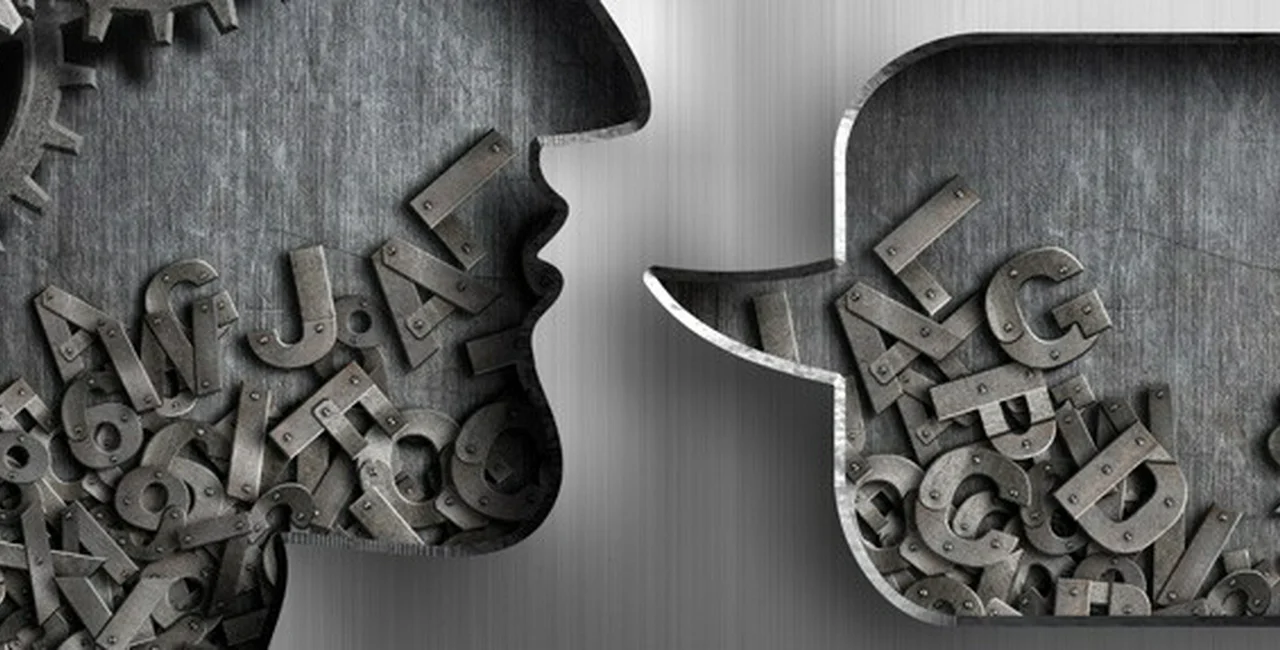Written by Terje B. Englund
Re-published with permission
Let´s start with the unambiguous verdict: Czech is the Rolls Royce of the Slavonic languages, and a star player in the Indo-European linguistic league. Czech is so rich, precise and, unfortunately, also complicated that a foreigner trying to learn the language may be driven to suicide. Either because he or she never manages to learn it, or because of the utter depression that follows when the foreigner realizes how primitive his or her own mother tongue is.
PARTNER ARTICLE
Linguistically speaking, Czech is – as are Slovak, Polish and the now nearly extinct Lusatian (Wendish) – a Western Slavonic language. Eastern Slavonic languages, such as Russian and Ukrainian, or members of the South Slavonic branch, as Serbian and Croatian, all belong to the same linguistic family. But because Czech, thanks In part to the unique vowel mutation it has undergone, is the most distinctive of all the Slavonic languages, its spoken version can be hard to understand even for other Slav peoples, bar the Slovaks.
The Czechs have traditionally been known as a book-loving people. Today, this can indeed be questioned (see: TV Nova), but one fact remains undisputed: no Slav people started to produce literature in their own language earlier than the Czechs. Within two centuries after the Macedonian missionary Cyril (ca. 827-869) and his brother Methodius arrived from Salonika to convert them to Christianity (see: Religion), the Czechs could boast an array of hymns, chronicles and ballads in their mother tongue.
Czech literature reached its first zenith under the reign of Charles IV (1346-1378), who made Prague the capital of the Holy Roman Empire (see: Central Europe). Among Charles´ many bright ideas was the foundation of a university in Prague in 1348. Here, another Czech giant, Jan Hus, started to teach his students a version of Czech based not on literature, but on the language as it was actually spoken in Prague´s streets at that time.
Hus not only chucked out tons of German and Latin loanwords, but he also introduced a “phonetic” spelling, which rendered every sound with a single letter. For those sounds that didn´t exist in Latin, he invented diacritical signs (ě, š, á, ř). As a result, Czech school children have rejoiced ever since at an orthography that is extremely logical and perspicuous, at least compared to what their poor colleagues in Poland still must endure.
Some other landmarks should also be mentioned. When the German Johannes Gutenberg invented the “black magic” of printing books in 1445, the Czechs followed suit only 23 year later, when the Trojan Chronicle (Kronika trojanská) was published. In addition, the importance of the Bible kralická, a reformed translation of the Bible from Greek and Hebrew published in the Moravian town Kralice, should not be underestimated. The translation was finished in 1594, and the six volumes were completed with linguistic as well as factual and theological explanations.
The Battle of White Mountain in 1620 is often excessively portrayed as a national catastrophe of immense dimensions, but when it comes to the Czech language, it really was quite a disaster.
To the Jesuits, the Habsburg Emperor´s storm troops, a book written in Czech (and not in Latin or German) was automatically treated as a demonstration of heresy. Thus, in the years that followed the Czechs´ defeat, an entire literature was practically destroyed. A certain monk, named Koniáš, was said to have set a record when he, single-handedly, burned 30,000 books authored by Czechs in their own language.
The germanisation of the Czechs in the aftermath of the debacle in 1620 went so far that by the end of the seventeenth century, the Czech language had been more or less eradicated in the state administration, in literature, in schools, at Prague´s university and among the upper classes. The language, which for centuries had produced literary works of sometimes amazing quality, was reduced to a means of communication among (often illiterate) peasants.
“Any person who wanted to be considered as well-bred and educated, was clinging with body and soul to German,” the literary historian Jan Máchal writes. “And those who still cared about Czech were regarded as fools or even lunatics.”
Things improved when the somewhat enlightened Josef II (see: Jews) replaced his mother Maria Theresia on the imperial throne in Vienna in 1780. Czech teachers were allowed to teach in their mother tongue, and a chair in Czech language and literature was established at the university in Prague. These rather modest reforms triggered what later became known as České národní obrození (the Czech National Revival). Obviously, the revival of the language played a crucial role. Here, two persons have earned themselves immortality.
In 1809, Josef Dobrovský (1753-1829), a theologian by training, published an Ausführliches Lehrgebäude der böhmische Sprache (Comprehensive manual for the Bohemian language). Based on both old Slavonic and the language of Czech folk songs and tales, the stringent scientist Dobrovský formed the laws of modern Czech.
As Jan Hus had done four centuries earlier, Dobrovský also started to throw out loanwords of German origin, replacing them either with revived Czech words, or by creating completely new ones. So, while the rest of the Slavonic peoples go to the teater or borrow books in a biblioteka, the Czechs are still going to the divadlo (“lookery”) and visiting the knihovna (“bookery”).
The second revivalist, Josef Jungmann (1773-1847) used Dobrovský´s work as a stepping-stone for further reforms. While the first regarded Czech mainly as a subject of scientific study, the latter struggled to put the grammatical laws into practice as a living language.
To achieve this, Jungmann first published a History of Czech Literature, then his master work, a Czech-German dictionary in five volumes (where he introduced Czech transformations of foreign loan-words with a creativity that even shocked good old Dobrovský), and finally a brilliant translation of Milton´s Paradise Lost. When Jungmann put down his pencil, the foundations of a modern Czech literary language were laid.
Now, let´s have a look at contemporary Czech.
Unfortunately for foreigners, no other Slavonic language has more cases (seven) or a more rigid grammar than Czech. Bar Slovak, Czech is the only Slavonic language where the accent always occurs on the first syllable of a word, which in some instances, for example when pronounced by an angry wife or a traffic constable, makes it sound like a burst from a machine gun. And finally, Czech is the only Slavonic language that allows its speakers to utter an entire sentence without using one single vocal. Try, for instance, this: Strč prst skrz krk! (put a finger through your throat!).
Czech also has another dimension, which is often ignored. It divides everything masculine from everything feminine with a downright sexist fervour! The English sentence I was tired and went to bed does not reveal whether a man or a woman said it. When repeated in French, you get a hint: j´étais fatiguée et je suis allée me coucher. And now, take a look at the Czech version: Byla jsem unavená a šla jsem spát. Even the biggest ignoramus has to notice the speaker´s gender! One should, of course, avoid jumping to conclusions, but it can´t be completely ruled out that this linguistic sexism has had some consequences for the psychological relations between men and women (see: Feminism), and the natural way in which many Czech women demonstrate they are proud to be women.
The complexity of Czech may drive foreigners trying to learn it to utter despair. They can, however, take comfort in the fact that the language poses problems even for the Czechs themselves. In reality, there is not one Czech language, but three quite distinct versions of it: Spisovná čeština (Literary Czech), Hovorová čeština (Spoken Czech) and Obecná čeština (Common Czech).
Literary Czech is the official language as it is spoken on the radio and on television and at official occasions. However, only persons who want to be perceived as very educated or very important or both use the literary language in daily life. This leaves the Czechs with two possibilities: either to use Spoken Czech, which can be described as a light-version of Literary Czech, where the most bookish expressions are softened, either syntactically (pracuju instead of pracuji) or lexically (kytka instead of květ), or to embrace Common Czech, the language of the man in the street.
Naturally, every ambitious citizen aware of his or her social prestige despises Common Czech. But from a linguistic point of view, it might seem that Common Czech is the richest of the three versions. True, the grammar is a bit simplified compared to the standard language, but the wild array of slang expressions (often of German origin) and its immense capability of creating neologisms makes Common Czech extremely vigorous. It goes without saying that it functions as a continuous production plant for unbelievable obscenities (see: Cursing).
So, how do the foreigner cope with the fact that Czech comes in triplo? Basically, he or she doesn´t have to care. The Czechs themselves know better than anybody else how difficult their language is. Even natives quite often make funny mistakes when they´re trying to speak Literary Czech at some official occasion, and unwittingly mix Common Czech into their sober language. Therefore, any foreigner who makes the most modest attempt to speak their mother tongue is usually greeted with boundless enthusiasm and support (see: Communication). But remember one crucial fact: the Czechs revel in self-flagellation, and often compete with each other to come up with the cruellest remarks about themselves and their country. If you, as a foreigner, do the same, even if your Czech is brilliant and your complaint is totally justified, you´ll be hated forever!
Terje B. Englund is a Norwegian journalist, writer and translator. Educated at the University in Oslo and the Institute of Slavonic Studies at Charles University, he has been based in Prague since 1993, covering Central and Eastern Europe for Scandinavian media. Englund is an affectionate cyclist, mountaineer and diver, and he also enjoys the company of his French bulldog, Gaston.
“Czechs in a Nutshell” can be bought via Internet at www.baset.cz and in bookstores throughout Prague.












 Reading time: 8 minutes
Reading time: 8 minutes 

















